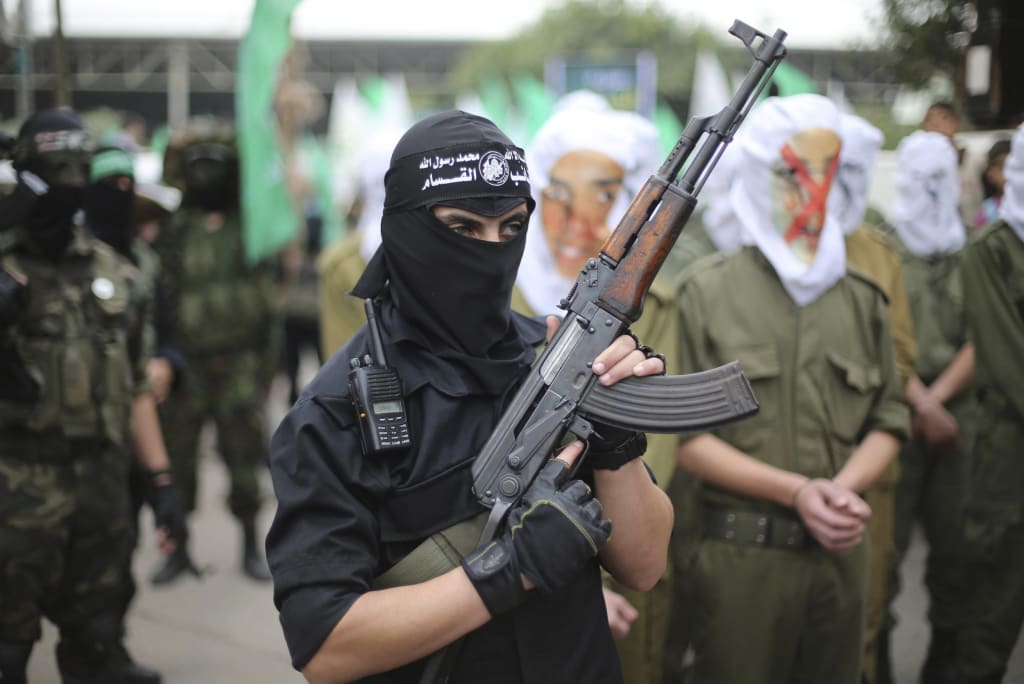Making terrorism from terrorist?
What makes terrorist a terrorist?

In the intricate tapestry of human behavior, the motivations driving individuals to embrace terrorism remain among the most perplexing and troubling threads. From the depths of poverty to the corridors of power, the reasons behind such radical choices often defy simplistic explanations. Delving into the minds of those who have succumbed to extremist ideologies unveils a complex interplay of personal grievances, ideological indoctrination, and societal dynamics. Through real-life examples, we embark on a journey to comprehend the multifaceted nature of what inspires terrorism.
The Echoes of Disenfranchisement: The Case of Mohammed
In the bustling streets of a marginalized neighborhood, Mohammed grew up amid poverty and neglect. His dreams of a better future dissolved in the harsh realities of discrimination and economic hardship. With each passing day, resentment brewed within him like a storm gathering strength. Unable to find his place in a society that seemed indifferent to his plight, Mohammed became a fertile ground for extremist recruiters promising him purpose and power.
Driven by a sense of alienation and a desire for vengeance against a world that had abandoned him, Mohammed found solace in the twisted narratives of terrorist organizations. Their ideology offered him a semblance of identity and belonging, fueling his resolve to wage war against the very society that had failed him. For Mohammed, terrorism became not only a means of retaliation but also a misguided quest for significance in a world that had rendered him invisible.
Growing up in a neighborhood where opportunities were scarce, Mohammed felt the weight of systemic injustices bearing down on him. The promises of extremist groups, offering him a chance to strike back at those he perceived as oppressors, resonated deeply within him. Through their propaganda, Mohammed found a distorted sense of purpose and belonging, transforming his feelings of powerlessness into a desire for violent retribution.
The Seduction of Ideological Zeal: The Story of Sarah
In the corridors of academia, Sarah was hailed as a prodigy, her intellect shining brightly amidst her peers. Yet, beneath her veneer of scholarly pursuits, lay a fervent belief in an ideology that promised to reshape the world. Raised in a family steeped in extremist thought, Sarah's worldview was shaped by the rhetoric of hatred and intolerance. As she immersed herself in the echo chambers of online radicalization, her academic brilliance became overshadowed by a growing obsession with ideological purity.
Fueled by a sense of righteous indignation and a desire to purge the world of perceived injustices, Sarah embraced terrorism as a noble cause. Blinded by her fervor, she turned a deaf ear to the voices of reason, seeing only enemies to be vanquished in her quest for ideological supremacy. In her mind, the ends justified the means, and any sacrifice was deemed acceptable in the name of her cause.
Sarah's journey into extremism was marked by a fervent belief in the righteousness of her cause. Raised in an environment where extremist ideologies were not only tolerated but actively encouraged, she internalized the rhetoric of hatred and violence from a young age. As she delved deeper into online communities espousing radical ideologies, Sarah became increasingly convinced of the necessity of violent action to bring about the change she desired.
Breaking the Cycle: A Call for Understanding and Empathy
The stories of Mohammed and Sarah serve as cautionary tales, shedding light on the myriad factors that can lead individuals down the path of extremism. From socio-economic disenfranchisement to ideological fervor, the motivations driving terrorism are as diverse as they are complex. Yet, amidst the darkness, there exists a glimmer of hope.
By understanding the root causes of terrorism and addressing the underlying grievances that fuel it, we can begin to break the cycle of violence and hatred. Empowering marginalized communities, fostering dialogue, and promoting empathy are crucial steps towards dismantling the allure of extremist ideologies. It is only through collective effort and unwavering resolve that we can build a world where the shadows of terrorism no longer hold sway.
In the end, the fight against terrorism is not merely a battle of arms, but a battle of hearts and minds. It is a testament to our shared humanity, and our capacity to overcome even the most formidable of challenges. As we strive to unravel the mysteries of what inspires terrorism, let us never lose sight of our common humanity, and the transformative power of compassion and understanding.
About the Creator
Sahil Lathwal
I'm Sahil, a passionate writer. My voice weaves stories, emotions, and melodies into an enchanting tapestry. Welcome to my world of creativity and expression. 🎶📝🎤





Comments
There are no comments for this story
Be the first to respond and start the conversation.